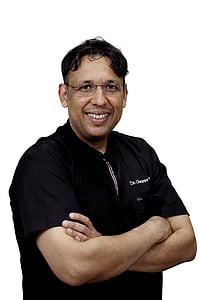Here are some effective strategies to help you care for thinning hair:2,3
Gentle Handling: Treat your thinning hair with care to minimize breakage and further damage. Avoid vigorous towel-drying; instead, gently pat your hair dry with a soft towel. Use a wide-tooth comb or a specialized detangling brush to gently remove knots and tangles, starting from the ends and working your way up to the roots.
Limit Shampooing: Thin, fine hair is delicate, making it a prime target for damage. Washing it too frequently can make it drier, more brittle, and more prone to shedding and breakage.
Choose the Right Products: Opt for hair care products specifically formulated for thinning hair, such as volumizing shampoos and conditioners. Avoid heavy styling products that can weigh down your hair and make it appear thinner.
Avoid Heat Damage: Limit heat-styling tools such as blow dryers, flat irons, and curling wands, as excessive heat can cause damage and weaken the hair shaft.
Scalp Care: Pay attention to your scalp's health, as a healthy scalp is essential for promoting strong, healthy hair growth. Use a gentle scalp scrub or exfoliating treatment once weekly to remove buildup and stimulate circulation. Massage your scalp regularly with your fingertips to promote blood flow and nourish the hair follicles.
Style Strategically: Experiment with hairstyles and techniques that can create the illusion of volume and fullness. Avoid tight hairstyles that pull on the hair, as this can cause stress and damage to the hair follicles.
Nutritional Support: Maintain a balanced diet rich in essential nutrients such as vitamins, minerals, and proteins, which are vital for healthy hair growth. Consider taking supplements designed to promote hair growth, but consult with a healthcare professional before starting any new supplement regimen.
Stress Management: Practice stress-reducing techniques such as meditation, yoga, deep breathing exercises, or regular physical activity to help manage stress levels. Chronic stress can contribute to hair loss, so finding healthy ways to cope with stress can benefit both your hair and your overall well-being.
Issued in Public Interest by Dr.Reddy's Laboratories LTD


























